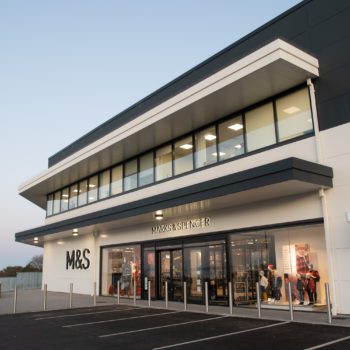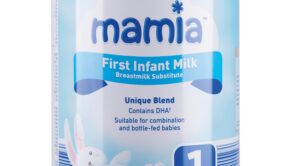UK indefinitely extends post-Brexit grace period for Northern Ireland
7 September 2021
The UK government has indefinitely extended plans for post-Brexit checks on some goods entering Northern Ireland, after negotiations with the EU reached a stalemate.
Grace periods and checks on the island of Ireland have already been extended twice.
The Guardian reports that on Monday evening, David Frost, who is leading negotiations with the EU about the Northern Ireland protocol, revealed a fresh extension.
According to government source, the UK wanted to “create space for talks to happen without deadlines looming” every three or six months.
While Brussels withheld its formal agreement on the move, the EU will refrain from launching legal proceedings over the extension of the status quo, The Guardian reported.
The newspaper’s source claimed that setting a new deadline just a few months away, with the current grace periods set to expire in October, “doesn’t help foster a creative environment for talks” and so the protocol “will carry on being operated as it is now for as long as there are talks ongoing”.
M&S writes to EU suppliers
On Friday, 3 September, M&S food commercial director George Wright wrote to EU-based suppliers, outlining its own “proposed solution” to post-Brexit checks for a “digitally-enabled Facilitated Movement Scheme that still meets all of the EU standards, but with a common sense, practical and modern efficient approach to achieving them that everyone can work with, EU and GB businesses alike.”
The full letter can be read below:
“Thank you for attending today’s meeting about the impact of Brexit-related compliance and regulatory enforcement on EU suppliers importing into the UK. It is a challenge we can only meet together if we are to deliver for our customers in the way they expect from M&S, and I really appreciate the collaborative partnership approach you continue to show.
As we discussed, one of the most challenging aspects of the changes that we have found when exporting products from Great Britain to the Republic of Ireland is the burden of compliance requirements around food of plant and animal origin. In particular, the bureaucracy around SPS controls and Export Health Certificates is high volume, slow, paper-based rather than digital, and allows for no margin of error. In short, it doesn’t work. We can already see that today in the impact it has had on food supply chains into both Ireland and the EU generally.
From 1st October, many businesses that currently export into Great Britain from the EU will also need to complete very similar paperwork and checks that we know from our experience add significant complexity to our supply chain. While physical checks will not begin until 1 December, the UK Government are clear that paper checks will begin on 1 October and it is clear from the information you have shared with us – as well as our own intelligence – that neither the UK Government or EU member state authorities are going to be ready.
What was clear from your feedback is as follows:
- A number of EU authorities do not appear to know what will be required and some have not yet clarified the certification procedures or translated Health Certificates into local languages;
- Some EU certifiers are not sure if they have enough vets employed – nor a pipeline of future vets;
- Some do not have enough staff to complete the necessary paperwork and still have not developed compatible and appropriate IT solutions;
- You remain concerned that in some member states, the offices which issue EHCs only operate Monday-Friday during office hours, when modern food systems rely on importing food seven days a week, so this working pattern will cause significant disruption to that import schedule and exacerbate the HGV driver shortage;
- While UK ports themselves should be ready, the facilities to hold lorries for physical checks, and the recruitment of the physical and document inspection teams themselves, may not all be ready for January. There are particular problems at the Welsh ports, Cairnryan in Scotland(both with ROI imports), Portsmouth has highlighted it is concerned about its own readiness, and Dover is not currently authorised to handle products of animal origin shipments.
EU markets represent over 25% of all UK food imports. So to have all of the companies in all of the member states have the right support from their local certifiers and vets, and for that to pass seamlessly through all EU and UK ports with 100% compliance is entirely unrealistic. If we don’t see a more common sense approach to compliance, this is going to hurt everyone involved.
Despite significant planning and investment from all of us to prepare for the change for goods leaving Great Britain to the EU, we still found ourselves facing a cliff edge of bureaucracy. We believe, given our previous experience and the current feedback we have from you, that there is a real danger of disruption and delay at the EU to GB border that will lead to significant food waste across the sector, reductions in range and availability, and inflationary pressures.
As we set out this afternoon, our concerns are not about meeting EU standards. At M&S we have world-leading standards and understand the principle of both the EU and UK wanting products entering their market to be safe and of good quality. It is the outdated and burdensome way in which we currently must demonstrate these standards that is the challenge we all face
Our proposed solution that we set out today is for a digitally-enabled Facilitated Movement Scheme that still meets all of the EU standards, but with a common sense, practical and modern efficient approach to achieving them that everyone can work with, EU and GB businesses alike. We also firmly believe that both governments can support business and trade by agreeing to standards equivalence. Nothing has changed since Brexit and recognising that would be a practical way to removing what is an unnecessary and unwanted burden for us all.
The goal of such a scheme would be to simplify the documentation burden, for both UK and EU businesses, whilst still demonstrating standards are being met. We hope a scheme like this will be adopted and we would value your support in engaging and advocating for this approach with your local Governments. To help you do this please find a toolkit attached.
In the event no solution is found, we need to do all we can to ensure we are prepared for the introduction of UK border checks and this means ensuring authorities across the EU are ready to provide the necessary certification. Please do speak to your local authorities about this, and we will of course continue to work with you and support you in whatever way we can.
Thank you for everything you have already done to prepare and please do continue to keep in close contact with the Brexit team and your trading managers so we can help mitigate any challenges before they arise.
Thank you,
George Wright
commercial director, M&S Food.”




 Print
Print






Fans 0
Followers